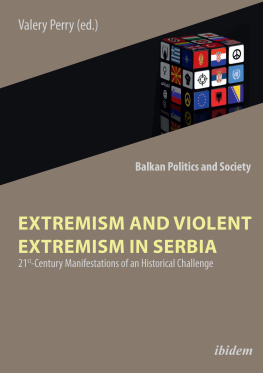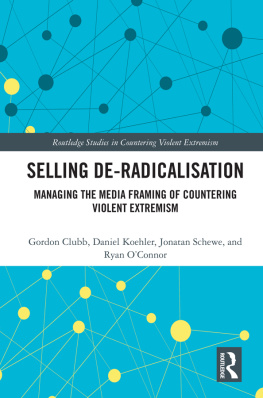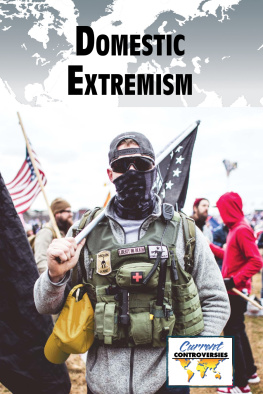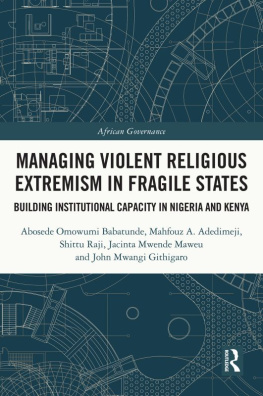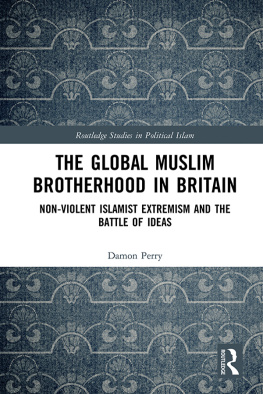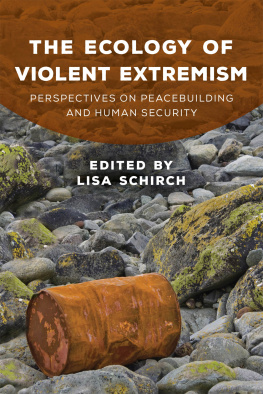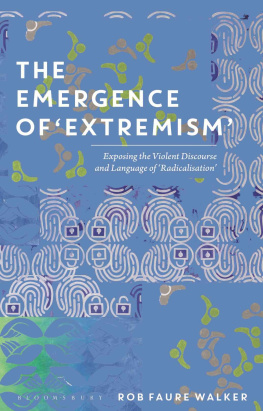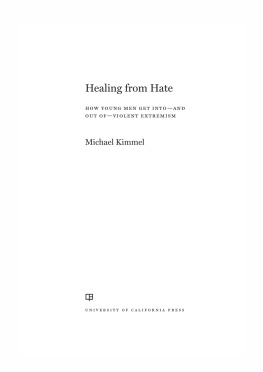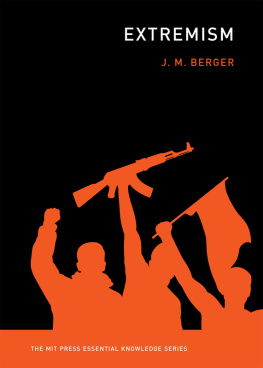ibidem Press, Stuttgart
Table of Contents
References
consistent and profound heroism of targeted prosecution of ideological opponents
Hate speech and dangerous rhetoric
Acknowledgements
This research project began in autumn 2017 with one key objective: to find out from a wide range of experts what research questions they think deserve consideration and attention when thinking about extremism and violent extremism in Serbia. The open call for proposals yielded nearly two dozen proposals, and it was consistently impressive to see the sophisticated understanding each of the selected researchers brought to the effort. Each author pursued their own research, and participated in peer review on other papers relevant to their own topic. This facilitated a collegial learning and working environment, and hopefully planted seeds for future collaboration. One contribution, by Boris Milanovi, was integrated into the collection later in the collaborative process, as the topic was both innovative in its subject matter and approach and complementary to the other research topics. Together the contributions combine historical and contemporary analysis and approaches that nicely reinforce themes, observations, and policy recommendations.
Many of the authors used various online sites, portals and tools in their review and analysis. These links were confirmed as of late October/early November 2018. The fluidity of online content can make it difficult to stay current, but they have provided sufficient references to ensure interested readers can find more information as needed.
I would like to thank each of the authors for their professionalism throughout the process, and their patience with seemingly endless peer reviews, conversations on methodology and substance, style suggestions, and copy-editing. It was a pleasure to work with Aleksandar Dadi and Ivana Zuber on the cover arta process that helped us to appreciate the visual branding of some of the -isms that surround and shape these issues. Thanks to Predrag Nikoli for his patience as Ive pondered themes and topics and engaged in comparative pontificating on the emergence of new and more troubling extremisms in the region and globally. Boris Milanovi, in addition to being an astute analyst, has been an excellent formatting guru. Jovana Vujanovi brought a set of fresh eyes to the manuscript in the final stages, just when we needed it. And thanks are due to the OSCE Mission to Serbia and the British Embassy in Serbia, as they supported independent scholarship on this issue, allowing for fruitful exploration and collaboration.
It has been a true pleasure to work with the contributors in this volume, as they have each brought with them unique yet complementary perspectives and skill sets that have made the process a learning experience for everyone. It is our hope that similar research will be supported in other parts of the region, based on the issues and needs defined by experts on the ground, who understand the issues that deserve attention and scrutiny.
The collection is dedicated to the researchers and activists who are fighting against the violence of extremism described in this volume, and who instead imagine a society where inclusion overcomes exclusion, engagement trumps marginalization, and hope eclipses fear.
Valery Perry
Belgrade, Serbia
November 2018
Defining, Framing and Contextualizing Extremism and Violent Extremism in Serbia: An Introduction to the Volume
Valery Perry
The topics of extremism, violent extremism, and in particular violent extremism grounded in militant jihadi ideologies have been at the forefront of the foreign policy architecture of the United States and its allies since September 11, particularly since the long and devastating war in Syria led to the emergence of the Islamic State of Iraq and Syria (commonly and variably referred to as ISIS, ISIL, or Daesh). The increase in violence, prolonged and intensified through shifting yet steady proxy war dynamics, has contributed to a notable rise in the number of individuals and families fleeing towards the west, adding to a human migration already occurring from Afghanistan, Pakistan, and sub-Saharan Africa. Spectacular acts of violence in Syria and Iraq, coupled with attacks in its name elsewhere (including in Europe), have been seared onto the consciousness of a global population who have been exposed to the news and imagery through pervasive social media as never before. It is not a coincidence that in this same period of time the world has seen a sharp trend towards rising and increasingly visible and emboldened populism and nationalism undergirded by small, but growing, vocal and empowered far-right factions, some of whom have successfully shifted political centers to the right through a process of social normalization of their own increasingly extreme messages, sometime buttressed by violence as well. As increasingly noted by expertsbut often ignored by voters and policymakers fearful of confronting their own domestic extremist demonsreciprocal radicalization in Western Europe and the United States has created a vicious cycle of growing extremism and entrenched social discontent, political polarization grounded in identity politics, and a heightened fear of the other.
Politicians, policymakers, and law enforcement agencies are struggling with these challenges in established and wealthy democratic states. Summoning the political will to not only introduce counter-terror measures but to also address the drivers of extremism through more effective policies and budgetary allocations is difficult in France, Germany, the United Kingdom, the U.S.; in fact everywhere, as defensive domestic postures and the politics of economic austerity have shrunk the public pie. It should therefore be no surprise that countries with much weaker institutional and economic foundations are facing even greater challenges. The Western Balkans provide an interesting case, as these countries occupy complex middle ground, geographically, politically, economically, and metaphorically. They enjoy a European perspective, but have not yet been assessed to have progressed enough to become European Union (EU) members in spite of years of post-war enlargement engagement in support of reform.
Being in between leads to a regional flavor of extremism that is distinct. The region continues to suffer from the pain of post-Cold War economic transition (and from the additional damage of the aftermath of the 2008 financial crisis). Yet at the same time, for that very reason, the Western Balkan region is not itself an attractive destination for refugees or migrantsa dynamic in the west that has fuelled far-right, anti-migration elements. The us vs. them narratives common in mainstream and extremist discourse on the position of Islam in society is also different. While countries in western Europe frequently struggle with poorly assimilated second- or third-generation populations of often Muslim migrants, in the Balkans the centuries-long presence of an indigenous Muslim tradition sets it apart from its neighbors to the north and west. However, the regions recent experience of war and ethnic cleansing grounded in the politics of violent ethno-national, clerical and sectarian distinctions skillfully manipulated by ethnic entrepreneurs (Gagnon 1994/95) has left a legacy of weakened social fabric, majority-minority tensions, and weak civic and bridging social capital. The development of liberal democracy and open markets hasnt emerged as smoothly as some in the west might have hoped, and countries in the region have been described less as examples of democracy and more as models of partitocracy (Kleibrink 2011; Kleibrink 2015; Stiks and Horvat 2014), or elastic authoritarianism (Mujanovi 2017). And just as the region is in greater need of a unified and incontrovertible values-based future perspective, the geopolitics of spheres of influence is returning amidst a trans-Atlantic alliance unmoored by the interrelated and cumulative impact of the politics of the Trump Administration (Bassuener and Perry 2017), Brexit, and the rising influence of Turkey and Russia (Bajrovi et al 2018; Devi, this volume). At the same time globalization has brought actors such as China and the Gulf states to the region, each pursuing their own interests (Bartlett et al 2017) and often different values.

